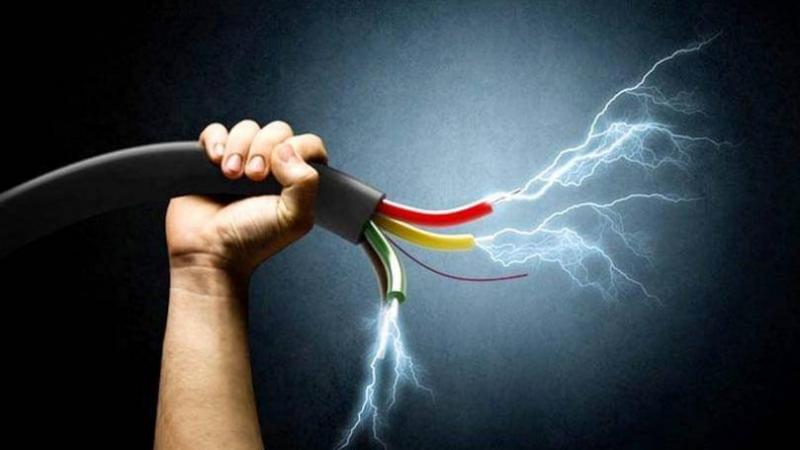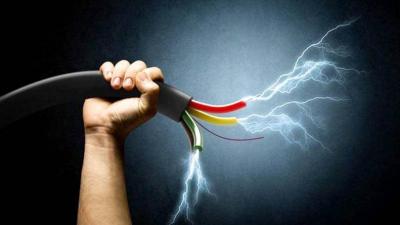The head of the "Free Patriotic Movement," MP Gibran Bassil, represented by the Ministry of Energy and Water, threw a bomb in the face of caretaker Prime Minister Najib Mikati, which seemed to be a retaliatory "slap" against the convening of the Cabinet with a legal quorum that Bassil had wagered would be impossible. In a surprising statement, despite being a chronic demand locally and internationally, the Ministry of Energy today announced the launch of recruitment procedures for members of the "Regulatory Authority for the Electricity Sector," emphasizing the necessity to amend the number of authority members to six instead of five, as stipulated by the law, in line with the requirements of the National Pact and the Constitution, which states that positions in the first category or its equivalent must be distributed evenly among the sects. Notably, Prime Minister Mikati had previously revealed on November 27 that "Energy Minister Walid Fayad surprised us by announcing the reception of applications for six members of the electricity regulatory authority while the requirement was to announce five members (a president and four members), and I sent a letter in this regard to Fayad because this is a clear violation of the law," concluding, "I am dealing with a political team that is concerned with obstruction."
Thus, the clash between Bassil and Mikati is fully open, which could fatally impact the Mar Mikhael Agreement, as Bassil finds himself confronting an ally who "betrayed" him since the first sovereignty experience. Although the "Regulatory Authority for the Electricity Sector" is a necessity for the International Monetary Fund, it remains a rich source for political blackmail and electoral bargaining. Therefore, it is at risk of being aborted before it is even born in light of partisan and existential political dangers.
Political quotas are inevitable. Energy affairs expert Aboud Zahr does not rule out political patronage in the establishment of the "Regulatory Authority for the Electricity Sector," stating to "Al Markaziya": "Everything related to the appointment of members of authorities, funds, and others in Lebanon is subject to political quotas, distributed among all parties from all sects for the past 30 years to today, and therefore, political quotas will be the fate of the 'Regulatory Authority for the Electricity Sector,' with its members being allocated to political leaders representing Christian, Shia, Druze sects, etc. Hence, there is no escaping from quotas whether we like it or not."
Regarding the extent to which establishing the regulatory authority will activate the International Monetary Fund agreement, he says: "It is imperative to create the 'Regulatory Authority for the Electricity Sector' as in all countries of the world. Specifically, in Lebanon, there should be such an authority endowed with independent powers, rather than the entire electricity file being solely linked to the caretaker minister. The electricity sector in Lebanon requires decades to recover and restore its organization, health, and productivity... It is unacceptable for an energy minister to spend a year or more preparing projects related to the energy file, and when his term ends, a new minister starts from scratch, as has been happening for the past twenty years. Therefore, nothing prevents the establishment of the 'Regulatory Authority for the Electricity Sector' to organize the sector and provide a clear scientific vision, thus ensuring the sustainability of its development projects."
He notes the "quick-fix projects they resort to here and there," saying: "For a year and a half, they promised the Lebanese ten hours of electricity supply, but they only received four hours intermittently, and even less in some areas, while it vanished in most areas in mid this year."
In terms of urgent solutions, Zahr urges immediate action, "including: - Work on laying a submarine cable from Egypt directly to Lebanon to supply it with electricity instead of gas, at acceptable prices generated from Egyptian gas and automatically integrated into the grid, instead of importing gas from Egypt through Syrian territories and its obstacles."
He adds: "If Egypt wants to provide Lebanon with greater support, it can supply it with electricity generated from renewable energy, where the cost per kilowatt/hour would be reduced from 9 and 10 cents to 4 and 5 cents. Creating what is called a Solar Park on the sea's surface close to the Zouk thermal plant or the Jiyeh plant at an acceptable cost—not on land—would then ensure that Lebanese people receive solar energy within six months."
Zahr concludes that the two solutions mentioned, the submarine cable and the Solar Park, if the correct and modern laws are found, could be implemented by the private sector without the Lebanese state bearing any costs... and all are swiftly executable solutions. There are many advanced ideas, as the world is changing and advancing rapidly. Therefore, Lebanon cannot rely on information from 1990 to implement projects for 2023!




